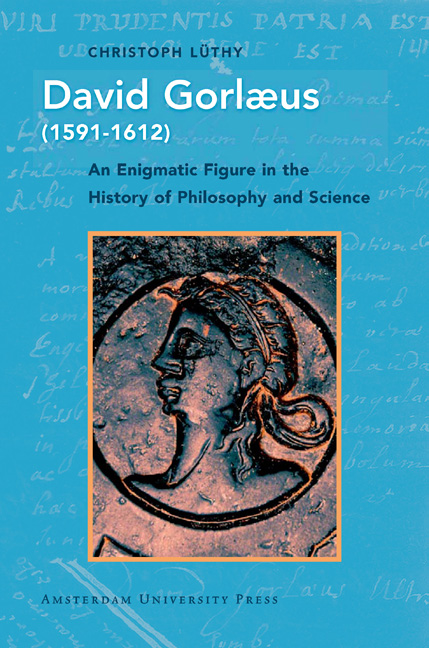Chapter 1 - Introducing Gorlæus
Published online by Cambridge University Press: 27 January 2021
Summary
Human history presents itself in stories about the past. Wherever these stories are not records of first-hand experience, they are based on the examination of archival materials, old books, archeological digs, paintings or material objects. History books present smaller or larger segments of this past in an organized narrative and inevitably from a certain perspective. Taken together, these books provide something like a large map of everything of which we know or believe, on the basis of a rational reconstruction, that it has been the case or has happened.
The resulting composite map of the past might be compared to those early nineteenth-century maps of Africa, on which strategically important elements, such as coastal lines, islands, estuaries and the main rivers and their larger tributaries, are drawn with great accuracy; while other, less accessible areas are indicated as blanks, as unstructured pieces of terra incognita. Like the explorer, the historian feels the allure of those unknown regions, and particularly of those regions that seem to hide a mystery or hold out a particular promise.
The present book is the result of such a blank spot and the presence of a particularly alluring mystery. The mystery to be explored carries the name of David van Goorle, an early modern Dutchman who is better known as Gorlaeus, his Latinate name, which we shall use in this book.
The reason why it seems desirable to reconstruct and narrate Gorlaeus’ life, thought and influence is threefold. The first reason has to do with the fact that Gorlaeus died at the mere age of 21, but left behind two manuscripts, published posthumously, that testify to an extraordinary intellectual maturity. Wunderkinder are usually found in music or poetry, but not in systematic philosophy. The attempt undertaken in this book to capture as much as possible of his life and intellectual circumstances is the result of the desire to understand the author of this premature work as well as the forces that led him to write such books in his late teens. The second reason is that, irrespective of Gorlaeus’ precocious age, his philosophical and scientific thought is unusual, fascinating and in several respects ahead of its time. Indeed, until about 1650, he was regarded as one the most important European innovators (novatores) in philosophy.
- Type
- Chapter
- Information
- David Gorlaeus (1591–1612)An Enigmatic Figure in the History of Philosophy and Science, pp. 11 - 24Publisher: Amsterdam University PressPrint publication year: 2012



